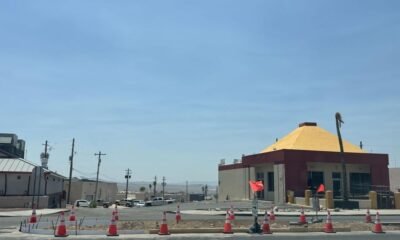Business
Sedona City Council Defies Laws, Leaving Residents Reeling from Costly Lawsuits

The City of Sedona is currently embroiled in multiple legal disputes, reflecting a series of systemic governance issues and legal missteps. The Sedona City Council has faced criticism for its tendency to overreach its jurisdiction, often resulting in lawsuits that waste taxpayer money.
In a recent case, the council overturned a unanimous recommendation by the Planning and Zoning Commission regarding the proposed Oak Creek Heritage Lodge. The council listened to appeals from nearby residents and a political action committee but seemingly ignored the legal limitations of their authority, prompting a lawsuit from the developers.
Legal comparisons reveal that just as appellate courts focus on narrow points of law, the council should have considered only the basis for the appeal rather than reopening the entire discussion. Instead, it appeared to make a politically motivated decision, veering away from legal obligations.
Residents are frustrated as taxpayer dollars fund both the city’s legal defense and settlements. One resident pointed out, “Council put resident concerns before those of the developer. The developer sued. It happens.” However, many argue that this should not be the norm and that the council should avoid placing itself in legally precarious positions.
This is not the only instance where Sedona’s governance has come under scrutiny. During the planning of the Forest Road Extension, the city delayed eminent domain processes, complicating land acquisition and creating further legal ambiguities.
Another case involved a property buyer deceived by inconsistent city staff advice regarding the conversion of an office building to lodging. This confusion led to a $1,165,000 compensation claim that was only waived after the council recognized its legal errors.
Furthermore, the city’s handling of House Bill 2720, which mandates the adoption of accessory dwelling unit (ADU) regulations, underscores Sedona’s governance challenges. Despite clear legal guidelines and examples from nearby municipalities, the city inaccurately claimed the ordinance didn’t apply to them, risking future compliance issues.
Instances of council overreach also include the attempted ban on off-highway vehicles (OHVs), which violated state laws, and efforts to establish a homeless car camp without proper legal procedures. These missteps wasted hours of staff time and resources while failing to achieve intended outcomes.
In a recent turn of events, the council’s decision on the Oak Creek Heritage Lodge resulted in an additional lawsuit. City Attorney Kurt Christianson advised caution, but the council moved forward, ignoring his guidance, leading to costly legal consequences for residents.
The legal lapses in Sedona suggest a persistent problem with the council making decisions beyond their legal remit. Critics argue that if the council continues to neglect legal advice, it might as well eliminate the position of City Attorney altogether, as avoiding legal pitfalls appears increasingly bleak.
The mounting legal challenges and inefficiencies demonstrate a critical need for Sedona’s City Council to revisit its approach to governance, ensuring compliance with legal standards and better resource management. The current trajectory serves as a cautionary tale for other municipal bodies intent on placing politics over legality.


















